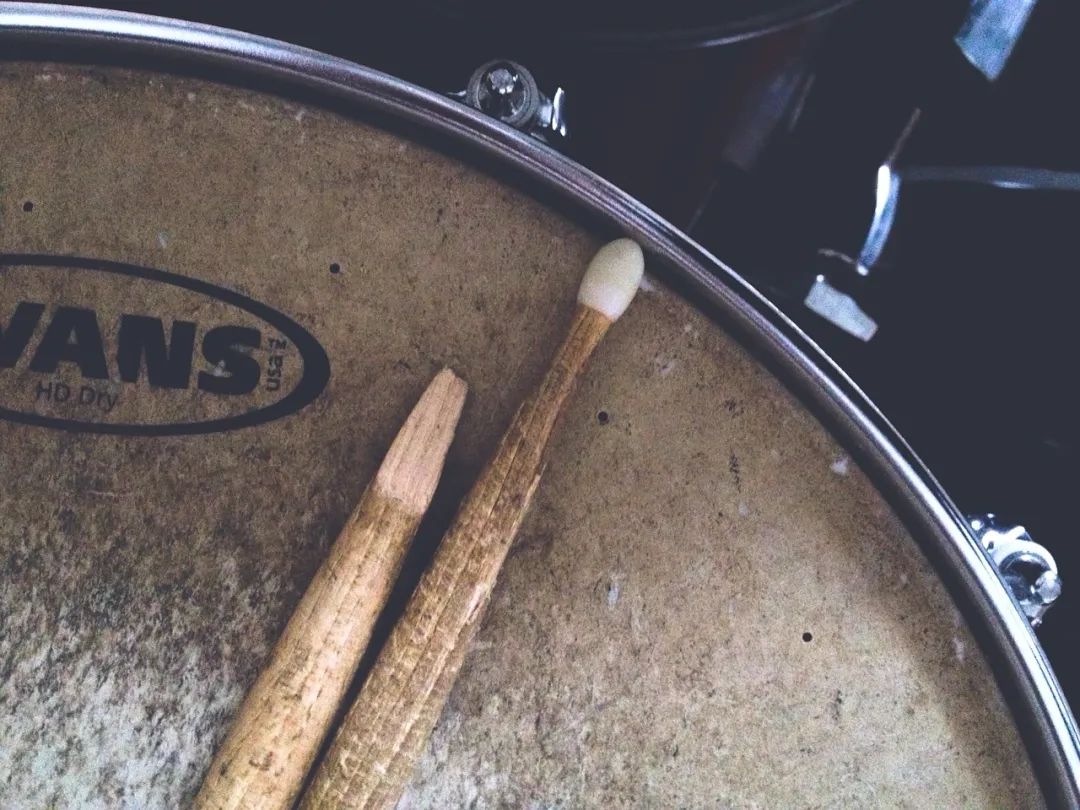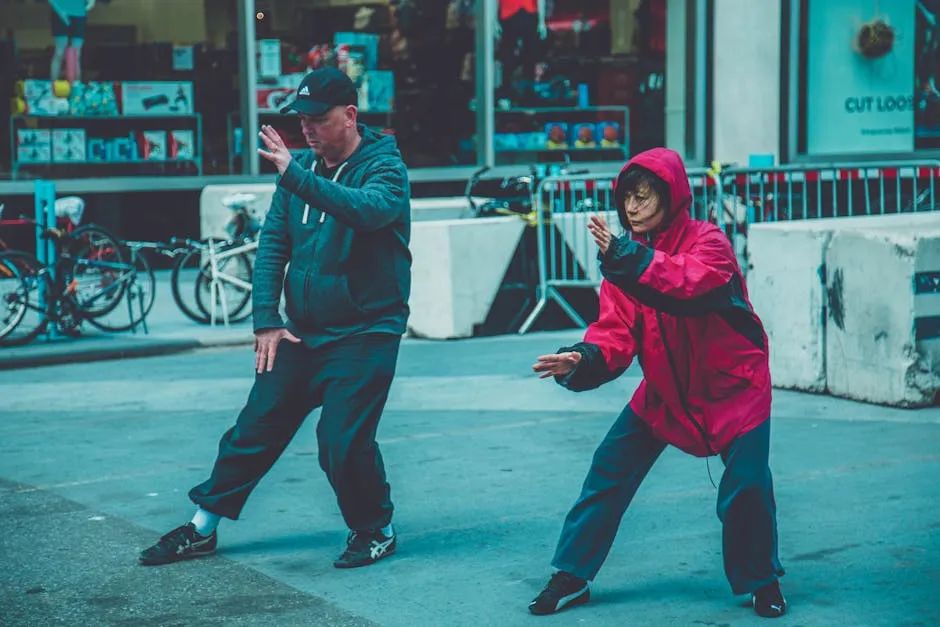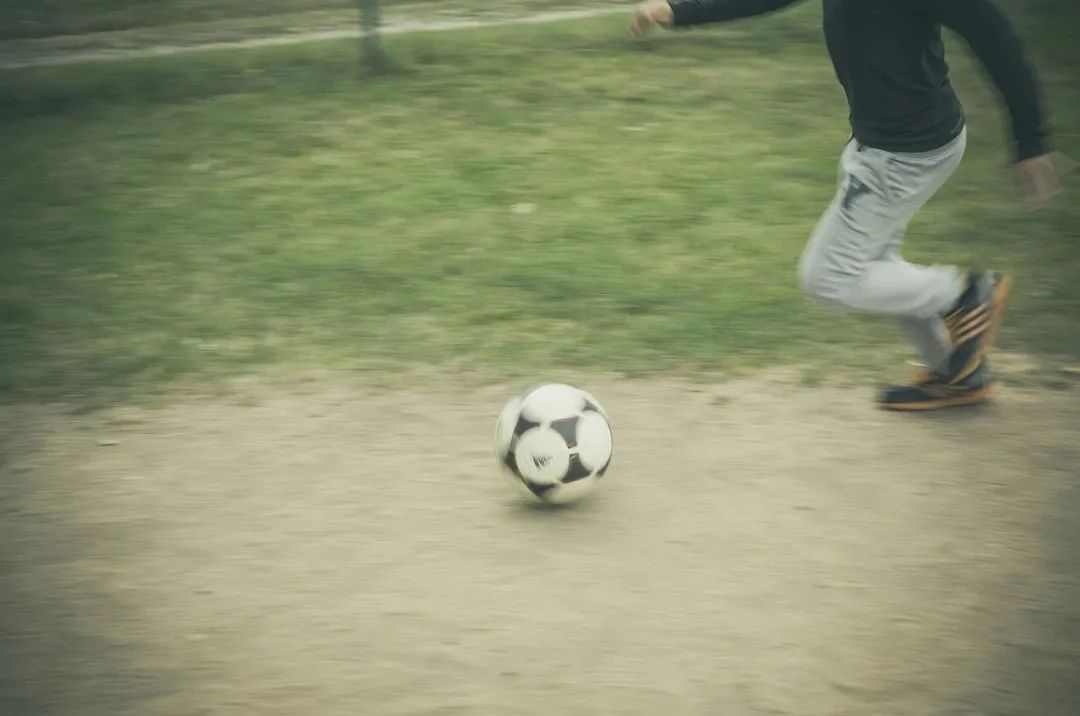
How to Practice, Build Skills & the Role of Flow State | Dr. Cal Newport & Dr. Andrew Huberman (youtube.com)[1]
Huberman Lab Clips | 如何练习与培养技能(心流的作用)[2]
简介
在这个视频中,Dr. Cal Newport 和 Dr. Andrew Huberman 探讨了如何通过心流状态和刻意练习来练习和培养技能。
他们提出了一些具体的策略,旨在帮助个体在面对新的或具有挑战性的任务时,有效地利用其认知资源来应对挑战,从而实现高效的学习和问题解决。
专业练习的艺术
本篇的一个主要观点是,专业人士在练习时往往会选择他们不舒服的任务。
这种"故意练习"的策略是为了刺激大脑的成长和适应性变化。
这与在熟悉和舒适的环境中练习形成了鲜明对比,后者可能不会以同样的方式推动技能的提升。
心流状态的角色
心流状态,或者在活动中的完全投入和专注,通常与时间感的丧失和高效能的表现相关联。
然而,内容中的讨论挑战了心流状态在所有类型的活动中都是有益的普遍观点。
相反,本篇内容强调了在进行新的或具有挑战性的任务时,保持一定程度的不适感和紧张感可能是必要的,这是因为它为大脑提供了进行适应和改进的信号。

笔记
深度工作和心流状态是两种不同的认知状态,它们在提高工作效率、学习新技能或进行创造性思考时都非常重要,但它们的应用和具体的践行步骤有所不同。
深度工作
深度工作是一种要求高度注意力和集中精力的认知状态,它的一个关键方面是它的挑战性和对认知资源的密集需求。
这种状态可能会与心流状态中的轻松和无缝感形成对比。
深度工作在需要解决复杂问题或进行需要深入思考的任务时特别有效。
比如编写一篇研究论文、学习一个新的编程语言或在项目中解决一个难题。
在这些情况下,深度工作可以帮助个体保持集中,有效地利用其认知资源来应对挑战,从而实现高效的学习和问题解决。

践行步骤
-
选择一个具有挑战性的任务,确保这个任务是你当前能力范围之外的,这样可以刺激你的大脑进行适应和改进。
-
为这个任务设定一个明确的目标,这个目标应该是具体的、可衡量的,并且是你可以在一定时间内努力达到的。
-
在工作期间,尽可能地消除所有的外界干扰,比如关闭手机和电脑的通知,确保你可以不受打扰地集中注意力。
-
在工作的过程中,保持高度的注意力和集中力,这可能会让你感到不适,但这种不适感是大脑进行适应和改进的信号。
-
在完成任务后,花时间反思你的工作过程和结果,识别出可以改进的地方,并根据这些反思来调整你的工作策略。

心流状态
心流状态,或者在活动中的完全投入和专注,通常与时间感的丧失和高效能的表现相关联。
然而,保持一定程度的不适感和紧张感可能是必要的,这是因为它为大脑提供了进行适应和改进的信号。
心流状态在进行创造性工作、进行体育训练或参与其他需要高度专注和投入的活动时尤其有益。
在这些情况下,心流可以帮助个体保持专注,减少外界干扰,从而提高工作或活动的效率和质量。
然而,与深度工作不同,心流状态可能不适用于所有类型的活动,特别是那些需要个体保持一定程度的不适感和紧张感的新的或具有挑战性的任务。

践行步骤
-
选择一个你感兴趣的任务,确保这个任务是可以让你完全投入和专注的。
-
在开始任务之前,设定一个清晰的目标,这个目标应该是可以在你完全投入和专注的状态下努力达到的。
-
在进行任务的过程中,尽可能地减少外界的干扰,比如在一个安静的环境中工作,或者在一个你不会被打扰的时间段工作。
-
在任务中保持高度的专注和投入,这种状态通常会伴随着时间感的丧失和高效能的表现。
-
在完成任务后,花时间享受你的成果,这种成果的享受可以是对你的工作的满足感,也可以是你在任务中的表现的提高。
两者步骤简表
| 深度工作 | 心流状态 |
|---|---|
| ① 选择能力范围之外的任务 | ① 选择有兴趣、能专注的任务 |
| ② 为任务设定一个明确的目标 | ② 任务开始前设定清晰目标 |
| ③ 消除所有外界干扰 | ③ 尽可能地减少外界的干扰 |
| ④ 保持高度注意力和集中力 | ④ 保持高度的专注和投入 |
| ⑤ 完成后反思工作过程和结果 | ⑤ 完成后享受成果 |
深度工作和心流状态是两种不同的认知状态,它们在提高工作效率、学习新技能或进行创造性思考时都非常重要,但它们的应用和具体的践行步骤有所不同。

中英全文
1 So I wrote a book 10 years ago where I was trying to figure out as part of it, how do people get better at things? And so I spent time with a professional guitar player and said, "I just wanted to see how he practiced." Like, what does this actually look like? And what I learned from them is like, what they do is, yeah, they have the music in front of them, but for them it's all speed. So they take a piece, like he was working on licks for, he was a new acoustic style player, and he had these kind of bluegrassy type licks, and he probably had it memorized, and he knew how fast he could comfortably play it. For them, it's all about adding 20% to what they're comfortably doing, and then that push past where they're comfortable. And the thing I remember writing about him was, he was concentrating so hard to try to hit this lick 20% faster than he was used to, it is he'd forget to breathe. So he'd be like going, going, going, and then just gasp! You know, like, 'cause his body would force him to breathe. So, yeah, there it seemed to be all about deliberate practice. So, like how do you... They don't waste any time. Professional musicians waste no time doing things they're comfortable doing. Every time they spend practicing, and this is also incredibly difficult, but every time they spend practicing, it's almost entirely in a state of, "I'm not comfortable with this, but if I focus as hard as I can, maybe I'm going to pull this off." Like I'll pull off the sonata at this new speed I'm trying to do. Maybe I'll pull it off. It's like the maximal growth stimulating state. And so I wrote in this chapter, "Why was he so much better at guitar than I was at the same age?" 'Cause I played a lot of guitar when I was younger and was in rock bands, right?
大约10年前,我在写一本书的过程中,试图弄清楚人们是如何在某些领域变得更好。
因此,我花时间与一位职业吉他手交流,我想要了解他是如何练习的。
通过观察,我了解到他们的练习方式似乎完全是关于速度。
他会挑选一段乐句,尽管他可能已经记住了这段乐句,并且知道他能够舒适地演奏的速度。
但对他们来说,关键是要在舒适的基础上增加20%的速度,然后努力超越这一舒适点。
我记得我在书中写到,他在努力尝试以比平时快20%的速度演奏这段乐句时,他的注意力集中到了极点,以至于他会忘记呼吸。
因此,这似乎完全是关于"故意练习"。
所以,职业音乐家在练习时不会浪费任何时间去做他们已经感到舒适的事情。
他们在练习时所花费的每一分每一秒,几乎都是在一种"我对此不舒适,但如果我尽可能集中注意力,也许我就能做到"的状态中。
这就像是在尝试以一种新的速度演奏奏鸣曲。
也许我能做到,这就像是在刺激最大化增长的状态中。
因此,我在这一章中写道,"为什么他在吉他方面比我同龄时要好得多?"
毕竟我年轻时也弹了很多吉他,并且在摇滚乐队中演奏,对吧?
2 And this kid was young, right? But really, really good. And I said, "Okay, now I realize it." I can recognize me when I look back at my time playing guitar at his age. I played stuff I knew how to play. Like, that's what was fun. Like, yeah, I want to like jam along with the songs I knew or, you know, rip some pentatonic scales, to like a Jimi Hendrix album. It was fun. And he spent almost no time. The pro spent no time having fun. Practicing was your brain had to be, you know, uncomfortable. So I've learned a lot from that, you know? This actually led to a bit of a battle, because my readers, there was this battle that emerged where people were trying to combine Anders Erickson and deliberate practice with Mihaly Csikszentmihalyi and flow. And really, they were trying to make flow apply everywhere. Like, it's all about flow. Deliberate practice is flow, everything is flow. The whole thing is to get into a state of flow. And I remember Anders talking about this at some point and say like, "No, no, no, like the state of practice that makes you better." It's the opposite of flow, right?
这个孩子还很年轻,对吧?
但是确实,非常擅长。
我说,"好的,现在我明白了。"
我可以在回顾我年轻时弹吉他的时候认出我自己。
我弹奏我知道如何弹奏的东西。
就像,那是有趣的。
就像,是的,我想要和我知道的歌曲一起即兴演奏,或者,你知道,在吉米·亨德里克斯的专辑中演奏一些五音音阶。
这很有趣。
而他几乎没有时间。
那个专业人士没有时间去玩乐。
练习就是你的大脑必须,你知道,感到不适。
所以我从中学到了很多,你知道?
这实际上引发了一场争论,因为我的读者,这场争论是人们试图将安德斯·埃里克森和故意练习与米哈伊·契克森特米哈伊和心流结合起来。
而且实际上,他们试图让心流适用于所有地方。
就像,这都是关于心流。
故意(刻意)练习就是心流,一切都是心流。
整个事情就是要进入一种心流状态。
而我记得安德斯在某个时候谈到这个问题,就像说,"不,不,不,就像,让你变得更好的练习状态。"这是心流的对立面,对吧?
3 In flow, you lose track of time. When you're practicing like that professional guitar player, you know every second that passes by because it's like incredibly difficult. Like, what you're doing, your mind is rebelling. It's not natural. You know, it's not fun. It's not the skier going down the hill, and it's all instinct. It's all you thinking about exactly what you're trying to do. And so, you know, I began to push this point out here. It's like, it's not all about flow. Like actually getting better at things is really painful sometimes. Deliberate practice is not the same as flow. And there was a lot of fights about this for a while. I think there was a lot of flow advocates that just wanted life to be flow all the time. But I think Anders was right because I watched these professionals practice, like that's what it is. It's not fun. Well, everything we know about neuroplasticity, which of course is the nervous system's ability to change in response to experience, says that there needs to be some neurochemical or electrical condition that changes in the nervous system in order to queue up plasticity. And to my knowledge, one of the most robust of those is the release of the so-called "catecholamines:" dopamine, epinephrine, norepinephrine. Dopamine, because it's involved in so many things, can be a little bit of a distractor. So let's just say epinephrine, norepinephrine, adrenaline, noradrenaline create in the body and mind, to some extent, a state of alertness, and often a state of agitation. But if you think about it, in the absence of some neuromodulators like those that change the conditions for wiring of neurons, you know, everyone loves "Fire together, wire together," a beautiful statement by Carla Shatz, not Donald Hebb Dr. Carla Shatz said that, not Donald Hebb, but why would neurons need to change their patterns of connectivity if you can complete the operation?
在心流状态下,你会失去对时间的感觉。
但当你像那位职业吉他手那样练习时,你会意识到每一秒的流逝,因为这是非常困难的。
你在做的事,你的大脑在反抗。
这不是自然的。
你知道,这不是有趣的。
这不是滑雪者下山,一切都是本能。
这是你在思考你正试图做的事情。
所以,你知道,我开始推动这一点。
就像,这不是关于心流的。
像实际上在事情上变得更好有时候真的很痛苦。
刻意练习与心流不同。
而且对此有一段时间的争论。
我认为有很多心流的倡导者只是希望生活一直是心流的状态。
但我认为安德斯是对的,因为我看到这些专业人士的练习,就是这样。
这不是有趣的。
那么,我们所知道的关于神经可塑性的一切,当然是神经系统对经验的改变的能力,表明需要在神经系统中改变一些神经化学或电气条件,以便排列可塑性。
而且据我所知,其中一个最强大的就是所谓的"儿茶酚胺"的释放:多巴胺、肾上腺素、去甲肾上腺素。多巴胺,因为它涉及到很多事情,可能有点分散注意力。
所以,让我们只是说肾上腺素、去甲肾上腺素、肾上腺素、去肾上腺素在一定程度上,在身体和心灵中创造出一种警觉状态,通常是一种激动状态。
如果你想想,如果没有一些神经调节器,即改变神经元连接的条件。
你知道,每个人都喜欢"一起激活,一起连接",这是Carla Shatz博士,而不是Donald Hebb的一个美妙说法,Carla Shatz博士说的,而不是Donald Hebb,但如果你可以完成操作,为什么神经元需要改变它们的连接模式?
4 The nervous system needs to, it doesn't feel discomfort, it creates discomfort, but the nervous system needs a cue to like, "Okay, this is different, I'm failing." And it's the failures that actually trigger the plasticity, is the discomfort that cues that conditions are different now. Otherwise, there's simply no reason to devote energetic resources to rewiring neurons. And I feel like we don't learn this when we're kids. And I think as kids, we can learn so much without that feeling of agitation. We get into these modes of looking for flow. And I have respect for the research on flow and the people who are involved in it, but I'd like to talk about flow a little bit. The only thing I really know about flow for sure is that backwards, it spells wolf. So, what of flow? [Cal chuckling] It's such an attractive idea, right? It's like "Star Wars." It's like you have the force. [Andrew imitating buzzing] And you're doing things without thinking, and awesome, but I can't flow myself through a paper and extract the critical data. I can't create a podcast in flow. But when it's done, it feels great. Especially if you nail the key metrics. So, what do you think about flow? I'm not trying to beat up on it, I just want to understand how you place it in the framework of learning and deep work, if it belongs there at all. It doesn't have a big place in it, in the deep work framework. And this was what the controversy was for a while. And I knew Mihaly a little bit, like we corresponded some. And I knew Anders a little bit, like we corresponded some. So I sort of felt like I was, you know, and both of them actually tragically have died in the last three or four years, I think. Oh, that's very sad. Yeah, I think both recently. Flow doesn't play a big role in the deep work framework, right? So when I was trying to justify deep work, so like, why focusing without distraction was important, I was drawing a lot more for Anders' work, right? Because why is focusing without distraction important? Well, you have to quiet the neural circuitry so you can isolate the circuit that's actually relevant to the thing that you're doing, right? You're not going to get better at something if you have noisy circuitry. And that requires really intense concentration. So it was one of the big advantages of deep work, was if you're used to that cognitive state, you're going to learn things faster. And I think it was all Anders to understand why. So if you're not distracted, I'm really focusing hard on what I'm doing trying to learn this new thing, you're giving the right mental conditions, but it's not a flow state. And I always used to say, "Okay, when your deep work is not flow," because of this, like a lot of deep work is you're trying to do something that is beyond your comfort zone. And that's going to be difficult. That's a state of deliberate practice. And there's a famous paper about this where Anders actually explicitly says deliberate practice and flow are very different. And I wrote an essay years ago called "The Father of Deliberate Practice Disowns Flow."
神经系统需要,它不会感到不适,它会创造不适,但神经系统需要一个信号。
比如,"好的,这是不同的,我在失败。"
而且,这些失败实际上会触发可塑性,是这种不适感触发了条件现在已经不同的信号。
否则,根本没有理由投入能量资源来对神经元进行重新布线。
而且我觉得,我们在孩提时代并没有学到这一点。
而且我认为,作为孩子,我们可以在没有那种激动感的情况下学到很多东西。
我们进入了寻找心流的模式。
我尊重对心流的研究以及参与其中的人,但是我想谈谈心流。
我真正了解到的关于心流的唯一事情是,如果你倒过来拼写,它会拼出狼。
那么,心流又是什么呢?
这是一个非常吸引人的想法,对吧?
就像是"星球大战"。
就好像你拥有了原力。
而且你在做事情的时候不需要思考,这感觉很棒,但是我无法通过心流来撰写论文并提取关键数据。
我无法在心流中创作播客。
但是,当它完成后,感觉很棒。
尤其是如果你实现了关键指标。
那么,你对心流有什么看法呢?
我不是想要打击它,我只是想要了解你是如何将它放在学习和深度工作的框架中的,如果它确实属于那里的话。
在深度工作的框架中,它并没有占据很大的位置。
而这就是之前的争议所在。
而且我确实有点了解Mihaly,就像我们之前有过一些交流。
而且我也有点了解Anders,就像我们之前有过一些交流。
所以我有点觉得我是,你知道,而且他们两个实际上都在过去的三到四年中不幸去世了,我认为。
哦,那真的很悲哀。
是的,我认为都是最近的事情。
在深度工作的框架中,心流并没有发挥重要作用,对吧?
所以,当我在试图为深度工作辩护时,那么,为什么专注而不受干扰很重要,我就更多地借鉴了Anders的工作,对吧?
因为,为什么不受干扰的专注很重要?
好吧,你必须要让神经回路平静下来,这样你才能够隔离出与你正在做的事情实际相关的回路,对吧?
如果你的回路很嘈杂,你就不会变得更好。
而且这需要非常强烈的专注。
所以,这是深度工作的一大优势,如果你习惯了那种认知状态,你就会学得更快。
而且我认为,这完全是Anders的功劳,是为了理解为什么。
所以,如果你没有分心,我真的在努力专注于我正在做的事情,试图学习这个新事物,你就在给出正确的心理条件,但这不是一种心流状态。
而且我总是习惯于说,"好吧,当你的深度工作不是心流时,"因为这个,就像很多深度工作是你在尝试做一些超出你的舒适区的事情。
而且这将会是困难的。
这是一种刻意练习的状态。
而且有一篇著名的论文是关于这个的,是Anders实际上明确地说,刻意练习和心流是非常不同的。
而且我在多年前写了一篇名为"刻意练习之父与心流决裂"的文章。
5 And again, people are really flow partisans out there. It's interesting. I think people just like the idea 'cause it feels good, but I mean, flow is the feeling of performance, is the way I think about it. Like, it's really hard to train for certain sports, but then when you're actually performing, you're in the game, you can fall in the flow, right? Because then everything is I'm doing... And it's really hard to train guitar. But like, when you're performing in front of a big crowd, you probably, maybe you fall in the flow, maybe you don't, but you could, right? But it's the performance state, not the practicing getting better state. So, you know, to me flow has like very little role in how I think about what I do as a cognitive professional. It's just not something that comes up that often. I agree that we learn through focused work and that flow does manifest itself during performance. And sometimes so much so that people exhibit virtuosity, so they're surprising themselves even. Like, "What's in there?" And that's kind of, I always think of, it's what is unskilled, skilled mastery virtuosity. Virtuosity seems to incorporate some sort random elements of maybe even the performer has not done that before and they surprise themselves, or something like that. Yeah. Who knows? These are words for something that isn't easily quantified in the first place. Thank you for tuning in to the Huberman Lab Clips channel. If you enjoyed the clip that you just viewed, please check out the full length episode by clicking here.
并且,人们对心流的偏爱非常有趣。
我认为人们喜欢这个概念是因为它让人感觉良好,但我认为,心流是表现的感觉。
就像,某些运动的训练非常艰难,但当你真正表现,你在比赛中,你可以进入心流,对吧?
因为那时候我在做的一切...。
而且,吉他的训练真的很难。
但就像,当你在大众面前表演时,你可能,也许你会进入心流,也许你不会,但你可以,对吧?
但这是表现的状态,不是练习变得更好的状态。
所以,你知道,对我来说,心流在我作为一个认知专业人士的思考中几乎没有什么作用。
这不是经常出现的东西。
我同意我们通过专注的工作来学习,而且心流确实在表现中显现出来。
有时候甚至是以人们表现出的卓越技艺来表现,所以他们甚至让自己感到惊讶。
就像,"里面是什么?"
而且这是一种,我总是认为,没有是不熟练的,熟练的精通卓越。
卓越似乎融合了一些随机元素,也许甚至是表演者以前没有做过,他们让自己感到惊讶,或者类似的东西。
是的。
谁知道?
这些是对一些本来就不容易量化的东西的描述。
谢谢你收看Huberman实验室的剪辑频道。如果你喜欢刚刚观看的剪辑,请点击这里查看完整长度的剪辑。

结束
参考资料
[1]
How to Practice, Build Skills & the Role of Flow State | Dr. Cal Newport & Dr. Andrew Huberman (youtube.com): https://www.youtube.com/watch?v=nEN2ceXyi-s&t=4s
[2]
Huberman Lab Clips | 如何练习与培养技能(心流的作用): https://www.bilibili.com/video/BV1bi42117eR/?spm_id_from=333.999.0.0&vd_source=1d44f7f1239b6bab3592038d5e406da0
























 被折叠的 条评论
为什么被折叠?
被折叠的 条评论
为什么被折叠?








